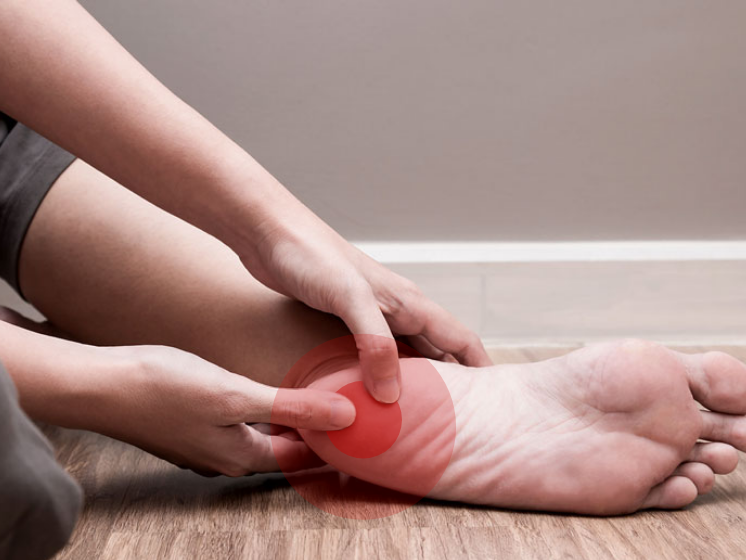How is Plantar Fasciitis diagnosed?

What is plantar fasciitis?
Plantar fasciitis is a flexible ligament band that stretches from the heel to the toes. With continuous pressure and stretching, the ligament damages, inflames or tears. People with high-arched feet, flat feet, obesity or are involved in sports like athletics are more prone to get, Shoes with unsupportive base and prolonged standing can also be the reasons of plantar fasciitis.
Plantar fasciitis pain develops gradually over time. The best thing one can do is to get it diagnosed as soon as possible since it can easily hamper the daily activities. Ignoring red flags can make the damage even worse. And for that X-rays, ultrasound and MRI are some techniques used to detect the area and extent of damage.
Plantar fasciitis treatment
There are non-surgical treatment options available for patients. Most of the patients prefer non-surgical treatments. Some non-surgical treatment options are rest, ice rolling, non-steroidal anti-inflammatory medication, proper footwear, cortisone injections, ESWT, physical therapy or exercise.
Coming next to surgical options, gastrocnemius recession is a surgical way to extend the length of calf muscles also called gastrocnemius. When a person’s calf muscles are tight they tend to put additional stress on the plantar fascia. Gastrocnemius recession is fruitful for such patients. Another way is plantar fascia release where the plantar fascia’s small section is removed to relieve stretch strain. An incision is made either on the bottom of the foot or right in the point where the thick skin meets the soft skin. The surgery is done endoscopically.
Plantar fasciitis recovery
After the surgery, non surgical measures are advised to be taken for a better and speedy recovery.
How to get treatment
Dr Suman Kumar Nag is a best orthopaedic doctor in raipur, being an expert hand in Orthopaedics and hence, the most recommended place to get treatment.
Book your appointment from the best ortho doctor in Raipur at Ligament Injury Clinic.
